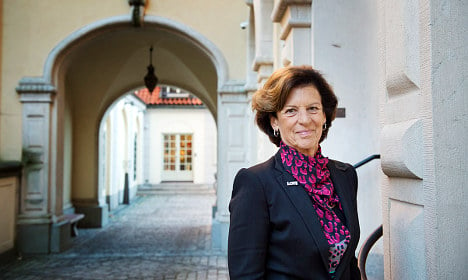Sweden’s justice minister indicated last year, when his department began working on it, that the government would present its draft law if listed companies did not have at least 40 percent women on their boards at their 2016 annual meetings.
Justice Minister Morgan Johansson said at the time that Swedish authorities wold impose a “substantial penalty” on companies that broke the rules. Some of his comments were interpreted as giving the government licence to dissolve companies that fell short, but the minster denied this would happen.
Writing in newspaper Dagens Nyheter on Wednesday, four top Swedish business women say they do not want legislation where “we are separated by gender and other factors we cannot influence.”
“As soon as we introduce quotas in one area it will become more difficult in principle to prevent it elsewhere,” write Antonia Ax:son Johnson, Viveca Ax:son Johnson, Jenny Lindén Urnes and Cristina Stenbeck.
The position of women in business is a broader gender equality question that should not focus solely on boardroom representation, they argue.
“The departure point must be defending the right to equal treatment. Quotas, by contrast, cement a division of ‘men’ and ‘women’,” they say.
Ownership rights also risk being jeopardized by quota rules, they claim, as a central pillar of ownership gives shareholders the right to elect the company boards they think are best placed to represent them.
This right would be “fundamentally dislodged if the state brings in coercive rules” limiting the rights of shareholders and company nominating committees.
If the quotas are enshrined in law it will be “only a matter of time before a boardroom law is followed by new calls for quotas on employees in management positions. Or that legislation will be stretched to include companies that are not listed on the stock exchange,” they argue.
Around 30 percent of board members in listed Swedish companies were women in 2015.



 Please whitelist us to continue reading.
Please whitelist us to continue reading.